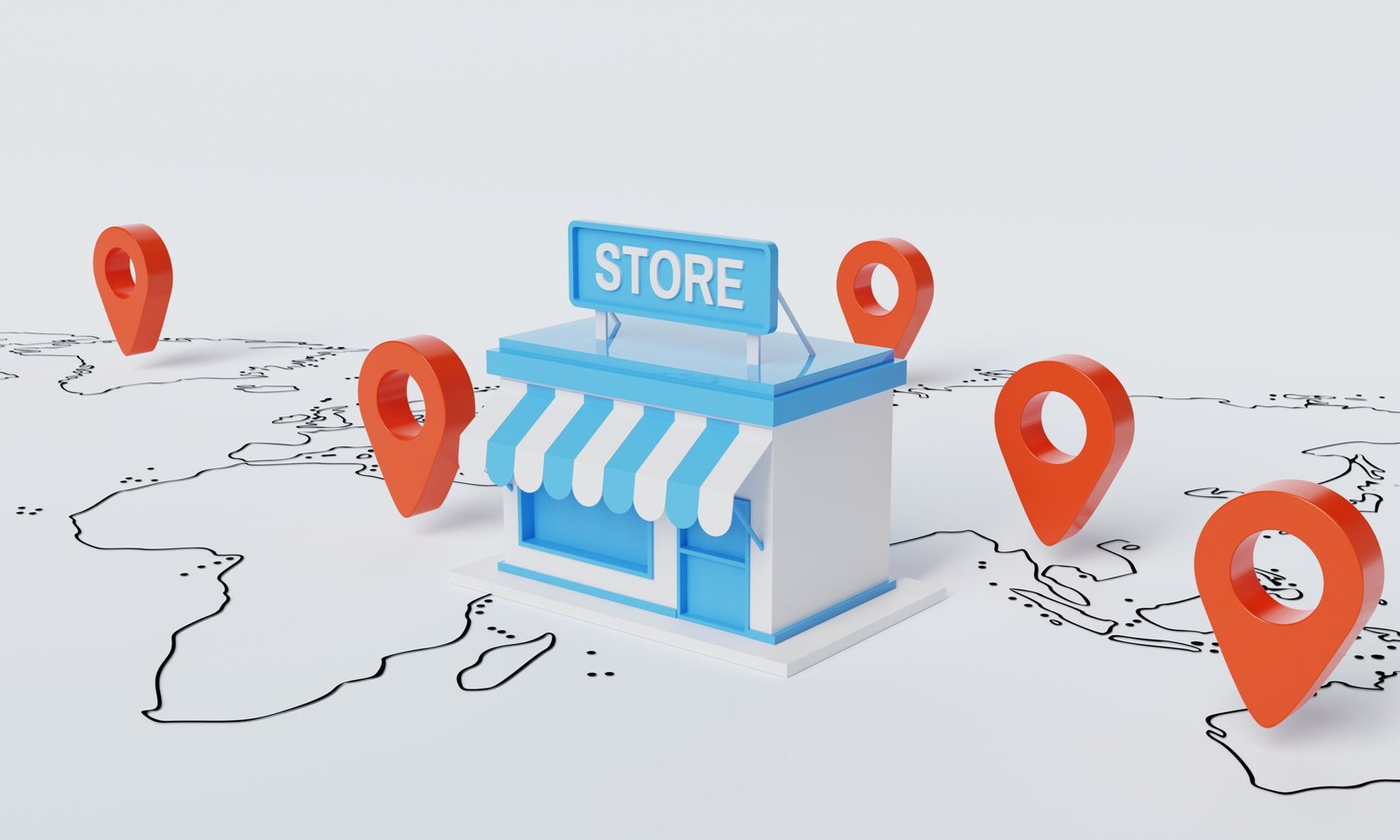Success in the e-commerce business rests on a company’s ability to understand the market, rivals, and customer behavior. With the sheer number of data accessible, conventional techniques of analysis fall short. This is where e-commerce web scraping and data mining for e-commerce pricing come into play, enabling sophisticated tools to extract and evaluate large volumes of information.
These technologies offer organizations valuable data to keep ahead of trends, analyze competition pricing, and fine-tune their plans. Whether it’s detecting market gaps or developing dynamic pricing models, leveraging data scraping has become crucial for building a strong reputation in the competitive online industry.
As the e-commerce market continues to develop, so does the difficulty of maintaining profitability while satisfying customer expectations. By using modern web scraping and data mining solutions, firms may make smart decisions that promote sales and insure sustainable growth. This article analyzes how data vendors help e-commerce enterprises to improve pricing and ensure their success in today’s digital market.
The Role of Data Vendors in E-commerce
1. Who are Data Vendors?
Data vendors are specialist service providers who give organizations precise, actionable information obtained from multiple online sources. In e-commerce, they employ innovative technologies like e-commerce web scraping to extract data from rival websites, customer reviews, product listings, and more. Their knowledge helps firms to obtain real-time information that drives strategic choices.
2. Why Data is Crucial in E-commerce?
The e-commerce sector depends heavily on information. To remain ahead, companies need to monitor competitor pricing, inventory movements, and customer preferences.
Data vendors provide complete e-commerce data scraping solutions, helping companies to remain informed and responsive in an increasingly dynamic industry. Accurate data helps organizations to respond rapidly, optimize pricing strategies, and boost consumer engagement.
3. Benefits of Partnering with Data Vendors
Collaborating with data vendors offers access to top-notch web scraping services for sales optimization. These services go beyond basic data extraction, delivering meaningful insights into demand forecasts, market positioning, and consumer behavior research.
Vendors offer solutions to analyze market trends, fine-tune pricing tactics, and improve inventory management, allowing firms to maximize their potential.
By delivering scalable, specialized data solutions, vendors play a vital role in helping e-commerce companies convert raw data into tangible outcomes, assuring long-term success in a highly competitive industry.
Leveraging E-commerce Web Scraping for Pricing Optimization
Effective pricing strategies are crucial for establishing a significant presence in the rapidly changing field of e-commerce, where customer preferences and market trends change with a blink of eye.
Extracting valuable information from e-commerce platforms enables firms to assess market trends, monitor competitors, and implement dynamic pricing plans. Let’s explore how employing web scraping helps organizations to stay ahead in ecommerce price intelligence and remain competitive.
Understanding E-commerce Web Scraping
The automated method of collecting information from online platforms to examine market trends, inventory levels, and competition pricing is known as e-commerce web scraping. Businesses may leverage this technology to gain vital information that helps them improve their pricing strategy.
By automating the data collection process, companies may save a lot of time, minimize human errors, and receive access to real-time insights that are vital for keeping ahead of the rivals.
Pricing Intelligence Through Data Scraping
Pricing strategies may make or break an organization in the highly competitive e-commerce sector. Pricing intelligence through data scraping helps online companies to monitor rival prices, analyze discounts, and spot pricing patterns across multiple items and categories.
For instance, scraping competitor websites can discover trends in seasonal promotions or pricing updates, enabling firms to proactively match or beat their competitors.
This knowledge also assists in selecting the most profitable price limits. By examining historical pricing data with real-time updates, organizations may estimate price flexibility, helping them achieve the ideal balance between competitiveness and profitability.
Competitive Pricing Made Smarter
Data scraping for competitive pricing delivers a clear perspective of market positioning. It gives insights into not just direct competition prices but also other expenditures like delivery fees and packaged deals. This data helps organizations to create price strategies that attract clients without affecting profit margins.
For example, if a competitor runs a flash sale or gives a discount on a popular product, scraped data enables firms to respond quickly with similar or better offers, holding client attention. Web scraping also enables continuous pricing monitoring, which helps companies stay ahead of the curve in shifting market circumstances.
Organizations may use dynamic pricing methods that meet market needs, attract new clients, and increase sales by using e-commerce web scraping. Ultimately, this helps online businesses stand out in a constantly changing retail environment.
Web Scraping Services for Sales Optimization
Unlocking the full potential of e-commerce involves more than just offering useful items; it also requires strategic insights to drive better decisions.
Web scraping services provide a lot of data that organizations may use to optimize their strategy, such as anticipating demand and improving client experiences. Let’s look at how these services drive sales optimization with accuracy and agility.
Improved Demand Prediction:
Driving sales in e-commerce requires knowing consumer preferences and forecasting market demand. Businesses may obtain information about seasonal patterns, popular items, and consumer feedback by using web scraping services.
Companies may predict changes in demand and adjust their inventory levels by analyzing this data. For example, companies might modify their tactics to match the surge in demand when they notice a sudden increase in searches for a certain product.
Personalized Marketing Strategies:
Providing customized experiences to consumers often serves as the determining factor in sales optimization. Businesses may analyze customer activity, such as browsing habits, purchase trends, and favorite products, by utilizing web scraper services.
This information can be used to develop customized marketing strategies, such as giving discounts on items that customers frequently view or promoting products that are relevant to them. These personalized interactions considerably increase sales by promoting customer engagement and encouraging repeat purchases.
Simplified Inventory Management:
Another crucial component of sales optimization is effective inventory management. Web scraping gives companies up-to-date information on stock availability on both their own and competitors’ platforms.
This enables organizations to determine which products are in demand to avoid overstocking and reduce the possibility of running out of popular goods. In addition to lowering operating expenses, optimized inventory makes sure that clients will find what they need when they visit the platform.
Companies may improve their sales strategies by using e-commerce web scraping to get a thorough grasp of consumer preferences and industry dynamics. Whether it’s forecasting demand, personalizing offers, or managing inventory efficiently, web scraping services enable companies to maintain a leading edge in the cutthroat e-commerce industry.
Challenges in E-commerce Data Scraping and How Vendors Overcome Them
Yes, there are countless benefits to obtaining useful e-commerce data from online platforms. However, there are also challenges associated with accessing important data in the online business. From technological challenges to legal complexity, businesses encounter many problems when scraping data.
To get over these problems, we need to look at the e-commerce data scraping solutions that suppliers provide
Dynamic Website Structures:
Dealing with constantly shifting website structures is one of the main issues in data scraping. To prevent the use of automated scrapers, a lot of e-commerce platforms upgrade their coding and layouts.
In order to solve this problem and ensure smooth data extraction, vendors use advanced scraping technologies and smart algorithms that can recognize and adapt to these changes.
IP Blocking and Access Restrictions:
To prevent unauthorized scraping, websites frequently use CAPTCHA challenges or IP restrictions. In order to get around this, vendors use strategies like headless browsers and rotating proxies, which simulate how people browse the web. These techniques help in getting over limitations while maintaining ethical data collection procedures.
Legal and Compliance Concerns:
Another crucial issue with e-commerce data scraping is dealing with legal limitations. Vendors ensure compliance by following rules, obtaining only publicly accessible data, and following terms of service agreements. Their expertise reduces risks while delivering companies the required information.
Vendors help companies in effectively addressing these issues by providing dependable e-commerce data scraping solutions. Their knowledge allows businesses to concentrate on using insights for strategic growth in addition to offering reliable access to high-quality data.
The Future of Data Scraping in E-commerce
With technology improvements, data scraping has become increasingly common in e-commerce sector, offering new opportunities for improved business ideas. Future improvements in e-commerce web scraping, such as AI-powered scraping and real-time analytics, hold immense potential. Let’s investigate how this technology will influence online shopping in the future.
AI and Machine Learning Integration
The combination of AI and machine learning may prove to be a game-changer for future data scraping activities. By leveraging cutting-edge algorithms, companies may seamlessly automate the gathering of data and evaluate trends and patterns as they occur. Additionally, they can make informed decisions for their platform, helping them expand and strengthen their positioning in the dynamic e-commerce industry.
Focus on Real-Time Data
The utilization of real-time data has become very essential to maintain pace with the rapidly expanding e-commerce industry. Future extraction tools will be more concentrated on collecting real-time insights, enabling companies to adapt rapidly to changes in the market, competitor movements, and consumer preferences. Moreover, real-time data can be beneficial in making changes in prices and marketing strategies.
Ethical and Compliant Practices:
As data privacy and compliance become more important, ethical data scraping procedures will become more important. Scraping tools will change over time to ensure compliance with legal requirements and maintain transparency in data collection. This will help companies in developing trust while also providing access to the necessary insights.
E-commerce web scraping’s future depends on its ability to adjust to changing laws and technological advancements. Businesses can leave an impressive mark in the continuously evolving e-commerce business, remain ahead of trends, and build innovative strategies by leveraging these technical breakthroughs.
Conclusion
Succeeding in today’s e-commerce scraping industry takes a strategic edge, and data-driven choices have become the cornerstone of success. With the growth of price intelligence through data scraping, organizations may dynamically modify their pricing strategies, match with market trends, and adapt to client preferences.
These advanced techniques help organizations to make educated choices that boost productivity while remaining competitive in a crowded environment.
By implementing data scraping for competitive pricing, online businesses can effortlessly optimize their operations by gaining a deeper understanding of their competitors’ methods. From analyzing pricing trends to identifying openings in the market, scraping technologies provide a data-driven strategy to enhance operational efficiency and profitability.
As the future of data scraping continues to advance, adopting these technologies will be important for organizations looking to succeed in a data-centric environment. Partnering with experienced vendors offers access to cutting-edge solutions, offering the competitive advantage required to grow.
Now is the right time to leverage the full potential of data scraping and convert your e-commerce strategies into an efficient source of productivity and growth.
This insight could benefit your network, feel free to share it.

Gaurav Vishwakarma
Director



